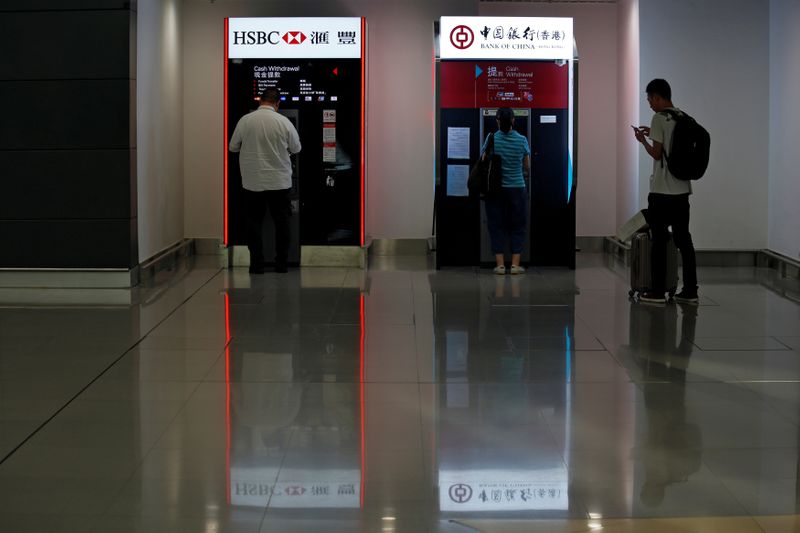SHANGHAI/HONG KONG (Reuters) - China's President Xi Jinping is enlisting the state-dominated financial sector in a war against a virus outbreak that has killed more than 500, mobilizing lenders, brokerages and fund managers to pump resources into stricken parts of the economy.
Answering Beijing's call, banks are rushing to offer virus-fighting loans at ultra-low rates, investment banks are helping companies issue anti-virus bonds faster, and managers of mutual funds are refraining from selling stocks, to damp market panic.
Concerted efforts to rein in the virus that emerged late last year in the central city of Wuhan highlight the centralized power the ruling Communist Party wields in a sector dominated by state-owned companies.
But the campaign, which has stirred memories of government rescue efforts during a market crash in 2015, deepens concern over corporate governance in China and risks sowing seeds of future trouble.
Wuhan DDMC Culture & Sports Co (SS:600136), a leisure company in the city, won Shanghai Stock Exchange approval to issue bonds of up to 600 million yuan ($86 million) via a "green channel" created for virus-hit companies, it said on Thursday.
"It's like receiving charcoal on a snowy day," the company, whose operations were wrecked by the epidemic, said on its website.
Three other companies - Zhuhai Huafa Group, Sichuan Kelun Pharmaceutical and China Nanshan Development Group - have raised a combined 2.1 billion yuan ($301 million) this week by issuing bonds via the interbank market, to fund virus-battling efforts.
Proceeds from the debt issuance, which won quicker-than-usual approval from regulators, will fund drug discovery programs and hospital construction, the companies said.
Regulators have also asked banks to inject cheap funds into virus-stricken areas, and not to withdraw loans from companies suffering the impact. Sectors such as tourism, transport and leisure are the worst-hit.
Bank of Suzhou, in the eastern province of Jiangsu, vowed to cut financing costs for hundreds of small corporate clients and bolster lending.
For companies such as food producers, logistics firms and makers of anti-virus drugs, it will cut the rate on loans by 10 basis points below the lending benchmark, to stand as low as 3.98%.
A loan officer at Bank of China promised special treatment for those defaulting because of virus fallout, saying the central bank would cap interest on loans to firms with operations critical to beating the virus, such as makers of masks and drugs.
He added, "Such companies will enjoy the lowest possible rates."
But the orchestrated support also triggered concerns of moral hazard among some.
"I'm afraid many companies about to go bankrupt will come and say their businesses are affected by the virus outbreak," said a bond fund manager, who declined to be named.
A flurry of government support has helped stabilize stocks in China's equity market after a plunge on Monday.
Regulators have told major mutual fund companies and insurers not to cut net equity positions this week, and urged brokerages to limit short-selling activities by clients, said sources who sought anonymity.
Fund managers were also nudged to do their bit. China's fund association, which is supervised by the securities regulator, said employees at 26 mutual fund houses had put their own money - or more than 2 billion yuan ($287 million) - into fund products since Monday.
Shi Bo, a fund manager at China Southern (NYSE:SO) Asset Management, added his remarks to a chorus of market-soothing views orchestrated by regulators.
"Despite short-term corrections triggered by the new virus outbreak, the long-term uptrend of the A-share market is intact," he wrote this week.
